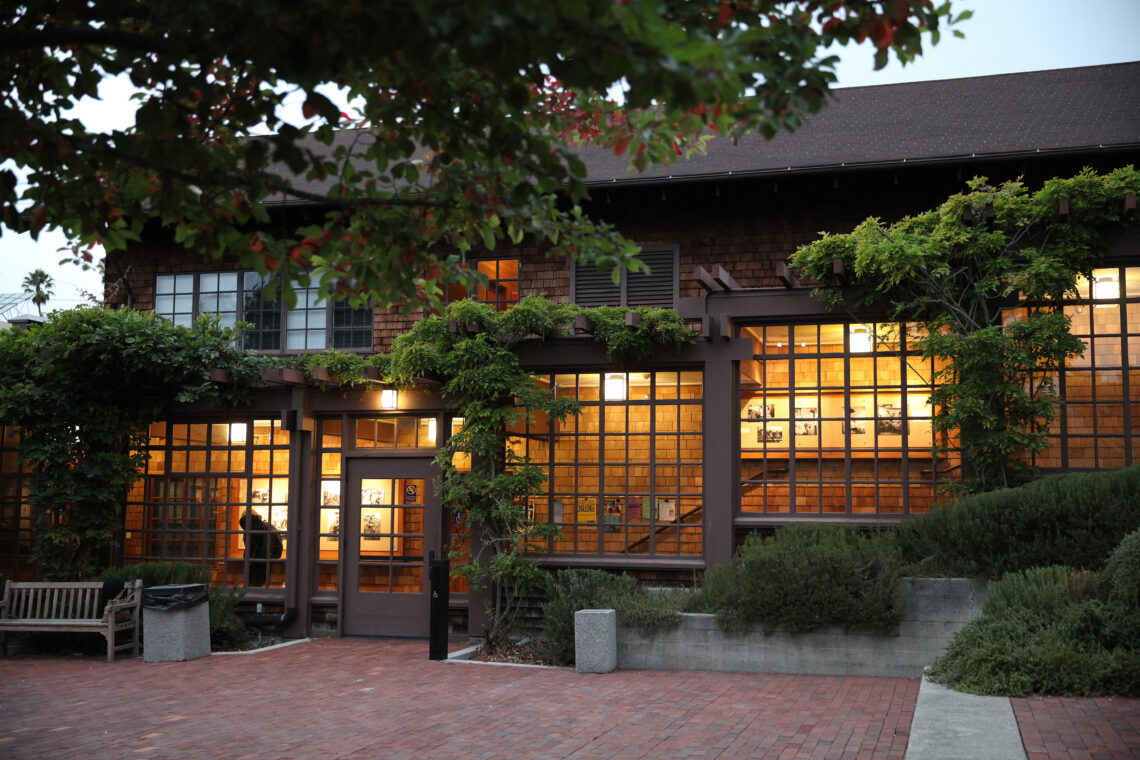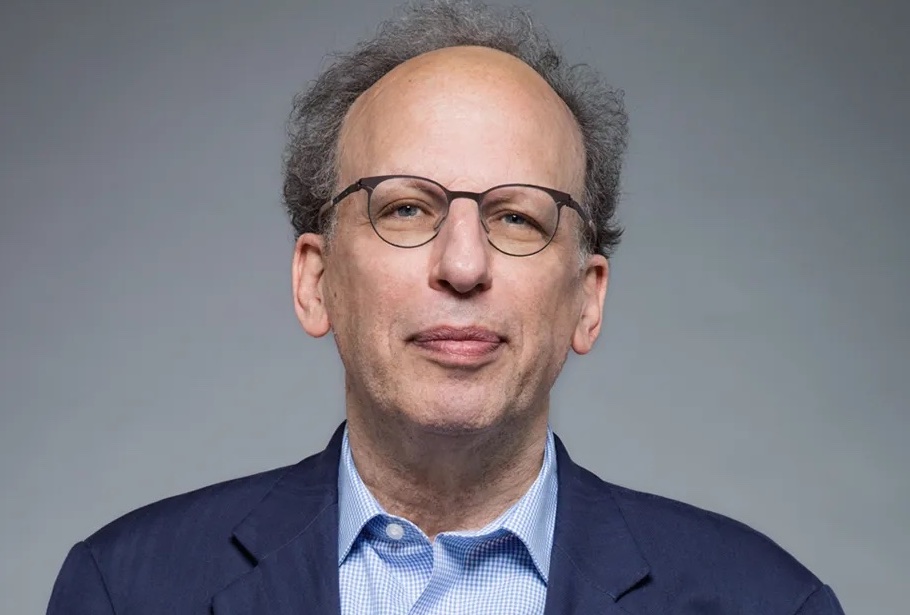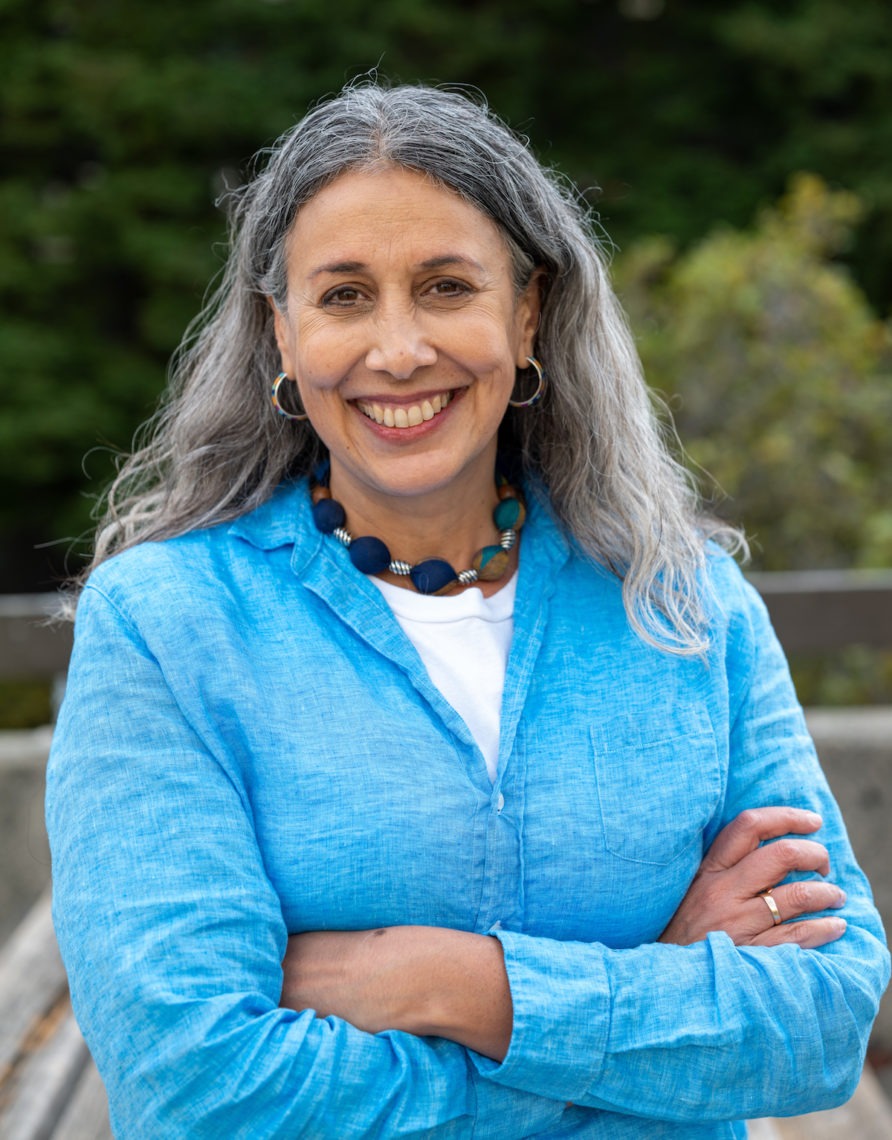
Photo: Wesaam Al-Badry (’20)
November 22, 2021
Dear Berkeley Journalism Community,
I write at a time of deeply felt gratitude. Gratitude for our extraordinary faculty, students and staff, all working together to navigate this still upside down world. I honor their resilience, their compassion and their utter dedication to our goal of changing the face of who gets to be a journalist in this country.
Our belief is that for the industry to fulfill its critical role in upholding democracy, we must first solve our lack of diversity. I am more convinced than ever that the time has come for journalism schools to take a much more proactive leadership role in ensuring the storytellers reflect the lived experiences of all Americans: from first-generation college students to military veterans and people with disabilities, from Native Americans to students of color and people with different sexual orientations. And to enlist those willing persons in our community to help us achieve our ambitious goals.
In our school, I have laid out a bold vision for Berkeley Journalism to lead the way in removing the economic roadblocks to lower-income people pursuing this profession of enormous influence. Together, we will raise an endowment of $100 million dollars as we aim to make Berkeley Journalism the first journalism school in the country to offer first-class, debt-free education. And the good news is that we are making substantive inroads.
We launched the Dean’s Fellows program thanks to $350,000 in private philanthropy. The leadership development initiative fully funds five first-generation college students. Read about our inaugural fellows Sabrina Pascua, MaryJane Johnson, Alfredo Torres, Corey Rose and Kayla Henderson-Wood here. We are currently raising funds to fully support our next class in the fall of 2022. To make a gift click here.
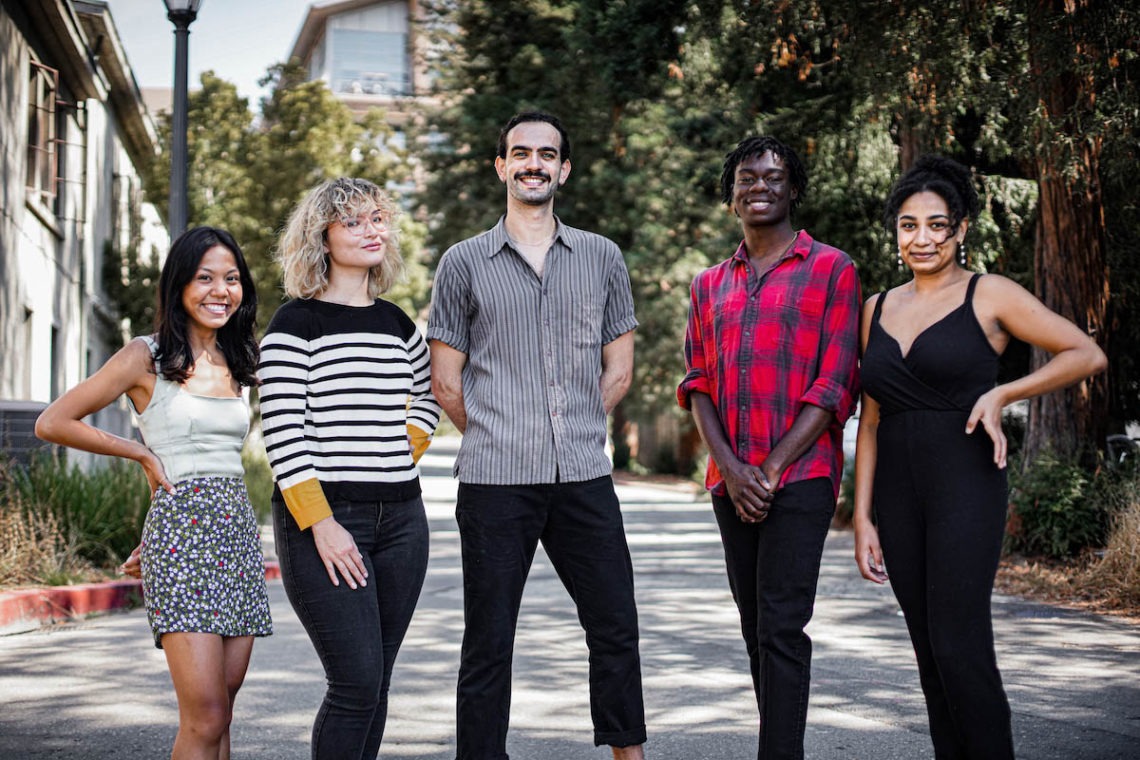
From left to right: Sabrina Pascua, MaryJane Johnson, Alfredo Torres, Corey Rose and Kayla Henderson-Wood. Photo: Beryl Terry (’23)
Reducing the barriers of entry to first-generation students will bring enduring change to our profession. Join me in celebrating the donors who answered the call and provided vital intellectual and financial support, including Bill Whitaker (MJ ’78 & ’17), John Crowley, Steve Silberstein, Tad Taube of Taube Philanthropies, James (Jim) Wood and an alumna of the school who preferred to remain anonymous.
In August, we created a new pilot program to guarantee equitable paid summer internships to all of our students. With the aid of a $245,000 grant from the Knight Foundation, Berkeley Journalism brings forth an impact-focused solution to the crippling cutbacks in newsroom internship budgets around the country, a long proven gateway for young reporters to launch careers in journalism. We will support 80 or more students with a maximum of $5,000 in compensation for summer internships.
And just last year, we established the Reporters in Residence Fellowship to embrace talented local Bay Area journalists into our campus community. We named Olivia Lozano and Kimyatta Newby this year’s recipients. The program was a student-led initiative to afford marginalized voices beyond our gates a seat at the table of influence. Each reporter in residence receives a $2,000 stipend, the opportunity to audit classes, and unfettered access to the school’s extensive resources. Both of last year’s recipients were undocumented, and one of them, Maria Bernal, is now enrolled as a full-time, first-year student in our graduate journalism program.
The Dean’s Fellows, the summer internships, and the Reporters in Residence programs are all a part of our larger goal to change the face of journalism. We are thrilled by the enthusiasm we’ve received from so many of you in our broad community, and welcome your continued support of this exciting and important work!
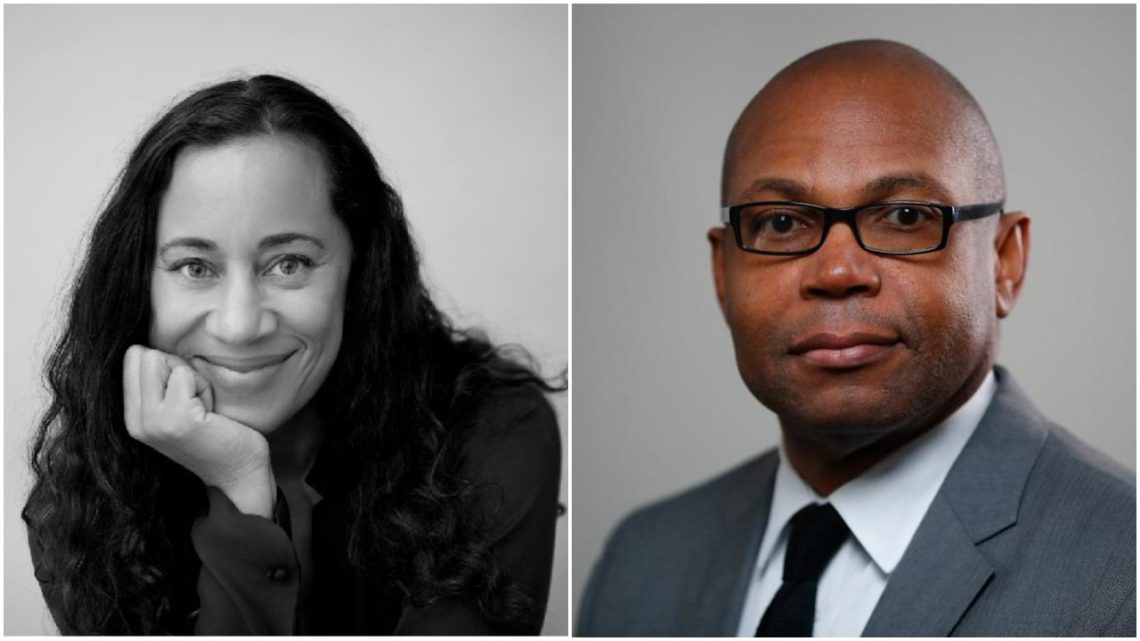
Andrea Wishom Young and Ron Nixon
We continue to build upon our efforts to address systemic racism in our profession and our school. Recruiting more extraordinary journalists of color to join our Advisory Board is a critical part of the School’s anti-racism plan. We are very proud to announce two new members: Ron Nixon and Andrea Wishom Young. Nixon leads global investigations at The Associated Press, and Wishom Young is a veteran television producer.
“I am thrilled to join the Advisory Board of Berkeley Journalism,” Wishom Young said. “I believe in its intent to ensure all stories are told and that the storytellers of today and tomorrow continue to be diverse to represent a growing and changing society.”
“I have long admired the work that the school does in terms of journalism innovation, its commitment to diversifying the industry and the overall quality of the journalists it produces,” Nixon said.
We’ve hired as professors two talented female journalists of color, Lisa Armstrong, an award-winning multimedia journalist who focuses on covering the incarcerated population, and Shereen Marisol Meraji, the former co-host and senior producer of the preeminent podcast on race and identity in America, NPR’s “Code Switch.” Both will teach our introduction to reporting classes in addition to courses on race in journalism.
Working with our students to publish is the cornerstone of our mission. Berkeley Journalism aims to recruit, train and send out the next generation of exceptional storytellers who will lead our profession into the future. We’ve just hired Bernice Yeung, a ProPublica reporter, Pulitzer Prize finalist and Polk Award winner, as managing editor of the Investigative Reporting Program. She follows our hiring of Christine Schiavo, our local news editor who is strengthening our school’s community news sites, Richmond Confidential and Oakland North. Both women are based at our school’s Investigative Reporting Program, where they focus on producing and publishing outstanding student work together with the program’s leader, David Barstow. As dean, I am most proud of the excellent work being produced by our students and recent alumni under the guidance of many of our extraordinary professors.
Students from the Class of ‘21 recently had remarkable honors bestowed on them. Kristen Hwang’s thesis documentary, “When They’re Gone,” about humanity’s fragile dependence on nature and the consequences of industrializing honey bees for crop pollination, won the top honor for student documentary filmmaking at the Student Academy Awards.
Watch our fabulous interview with Kristen Hwang below.
Multimedia producer Brett Marsh (‘21), won the ONA’s Student Journalism Award for his stunning thesis project on how an innovative transit system in Bogotá, Colombia is transforming a community on the margins.
And “Anchored Out,” the thesis film of directors/producers Katie Bernstein and Clara Mokri (’21) has been nominated for the IDA’s David L. Wolper Student Documentary Award. Support our multimedia program here and our documentary program’s Fine Cut Fund here.
Each of these prestigious awards involved our students competing, and winning, against their contemporaries at journalism and film schools across the country. We could not be more proud of our students, and the talented instructors who trained and mentored them.
Two of our PBS FRONTLINE projects have been named finalists for the 2022 duPont-Columbia Awards! These are the Pulitzers of broadcasting and a huge honor for all involved. The documentary, “COVID’s Hidden Toll” examined how the absence of workplace protections for essential agricultural workers fueled COVID infections among a vulnerable workforce as cases among Latinos and African Americans were surging across the U.S. It was written, directed, and produced by Daffodil Altan (‘04), a Berkeley Journalism lecturer and FRONTLINE producer and correspondent, documentary filmmaker and Professor Andrés Cediel (‘04), and co-produced by María José Calderón (’09). Brandon Yadegari, Lulu Orozco, Nick Roberts, Rosa Tuirán, Jess Alvarenga, and Pedro Cota (‘20) were associate producers, with Molly Forster (‘20) contributing additional research. Zachary Stauffer (’08) contributed additional camera work.
The Class of 2020’s involvement grew out of Berkeley Journalism’s innovative “Chronicling COVID-19” project, which turned the School into a newsroom for covering the coronavirus for a variety of publications, including The New York Times. More than half of our student body was published in the Times as part of that project, which was led by the Investigative Reporting Program, which you can support here.
A second film, “American Insurrection” exposed the threat posed by militia groups, white supremacists and other extremist groups through in-depth reporting by Gisela Pérez de Acha (’20), Kathryn Hurd (’21) and Ellie Lightfoot (’21). They worked under the editorial leadership and supervision of Professor Barstow and Lecturer David Thigpen.

From left to right: Brian Nguyen (’22), Andrea Lampros (‘97), Alexa Koenig, Richard Koci Hernandez, Gisela Pérez de Acha (’20) and David Barstow. Photo: Beryl Terry (’23)
We are creating new classes to train our students to use innovative technology enabled platforms in journalism. This fall, we launched an investigative reporting course using open source intelligence with Berkeley Law’s Human Rights Center. Prof. Barstow, and Richard Koci Hernandez are the leads on the journalism side. The goal of the class is to produce investigative stories that will be published in the Associated Press and Reveal.
Together with Berkeley Law Dean Erwin Chemerinsky, Associate Dean of the School of Information Hany Farid, former Homeland Security Chief Janet Napolitano and CITRUS Policy Lab Director Brandie Nonnecke, we will soon announce an initiative to study and influence legislation on disinformation and illegal activities on social media platforms. This will also include a multidisciplinary class or workshop bringing together students from across campus to produce journalism about the policy proposals under discussion in the spring. We are grateful to Advisory Board member Simone Coxe for supporting this initiative.
Here are some of the highlights from our prolific journalism community. I share these knowing it is impossible for us to feature all of the accomplishments in this limited space, so I urge you to follow our social media channels to learn of our community’s important work and awards in real time.
Student News

Our National Association of Hispanic Journalists NAHJ Chapter’s first meeting of the semester, with faculty advisor/alum Andrés Cediel (’04). Photo: Buddy Terry (’23)
Producer Armon Owlia (’23) launched a new podcast, “The Aut Cast,” in October. The podcast delves into the cultural, medical, social and political issues around autism.
Mathew Miranda (‘22) was named the Jim Marshall Fellow in photojournalism. We are thankful to Jeff Goodby, and photographer Amelia Davis for their loyal support of this scholarship.
Izzy Bloom‘s (’22) first longform audio story, “The art of sashiko continues to help (Japanese) residents 10 years after tsunami and earthquake,” aired on PRI’s The World.
Cameron Nielsen (’22) was the director, producer and editor of an exemplary documentary short on Native American tribes helping control California wildfires through careful tending and stewarding of the land, for KQED Arts.
Lauren DeLaunay Miller‘s (’23) “Valley of Giants,” is a forthcoming anthology of stories and interviews with more than 40 female climbers in Yosemite, and is now available for pre-order from Mountaineers Books.
Idris Mukhtar (’22) produced a devastating report on the state of the pandemic in Kenya for CNN: Due to vaccine skepticism, coffin makers say they’re busier than ever, while official data tells, “only a small fraction of the full story.”
The Greater Good Science Center at UC Berkeley and Berkeley Journalism announced the recipients of the inaugural reporting fellowship on Latino well-being, Kathryn Styer Martínez (‘23) and Mathew Miranda (‘22).
Many folks from the Berkeley Journalism community, including two current students Steven Rascón (’22) and Kathryn Styer Martínez (‘23), are working on a big series coming out of Reveal called, “Mississippi Goddam,” about a Black high school football star who died during a traffic stop with a white deputy in 2008. His family has been searching for answers ever since. Jonathan Jones (’05) is the lead investigative reporter, Amy Mostafa (’20) is the production manager and Brett Simpson (‘21) is the sound design assistant.
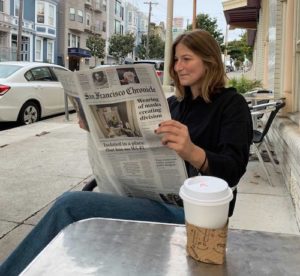
Sofie Kodner (’22) with her front page story about the lack of wi-fi in San Francisco’s SRO buildings, in the San Francisco Chronicle.
Our students have also published important work on the challenges of aging in America. The Investigative Reporting Program has led the initiative through a grant from the Scan Foundation. The Washington Post published a story by Sofie Kodner (’22) on how new monitoring systems keep a close watch on older people. Kodner also reported on the lack of wi-fi in San Francisco’s SRO buildings for the San Francisco Chronicle. Will McCarthy (‘21) had his story on aging Americans discovering a love for train travel published in Travel and Leisure. Zac Fletcher (‘22) saw his story on an intergenerational friendship published in Next Avenue.
Dallin Mello (’22) produced a terrific segment for NBC News about Queer Surf founder Kyla Langen, who after years hiding her identity on the professional circuit is bringing more LGBTQ surfers into a sport that hasn’t always been welcoming.
Francisco Martínezcuello (’22) had a beautifully written, stunningly self-reflective essay about having to put his dog down, in The Line Literary, which features works for and by veterans.
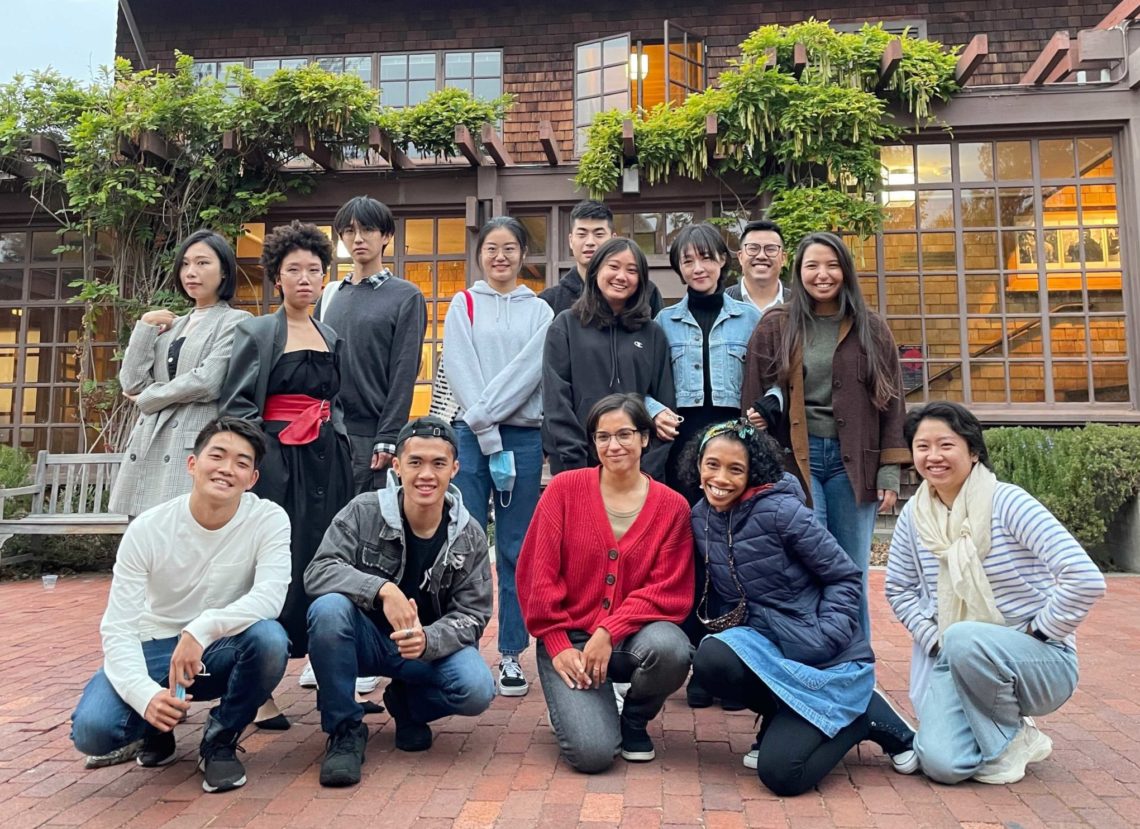
Our Asian American Journalists Association (AAJA) Chapter’s first meeting of the year.
Eleonora Bianchi and Sofie Kodner (’22) produced a charming documentary short on San Francisco’s Musée Mécanique, for KQED Arts.
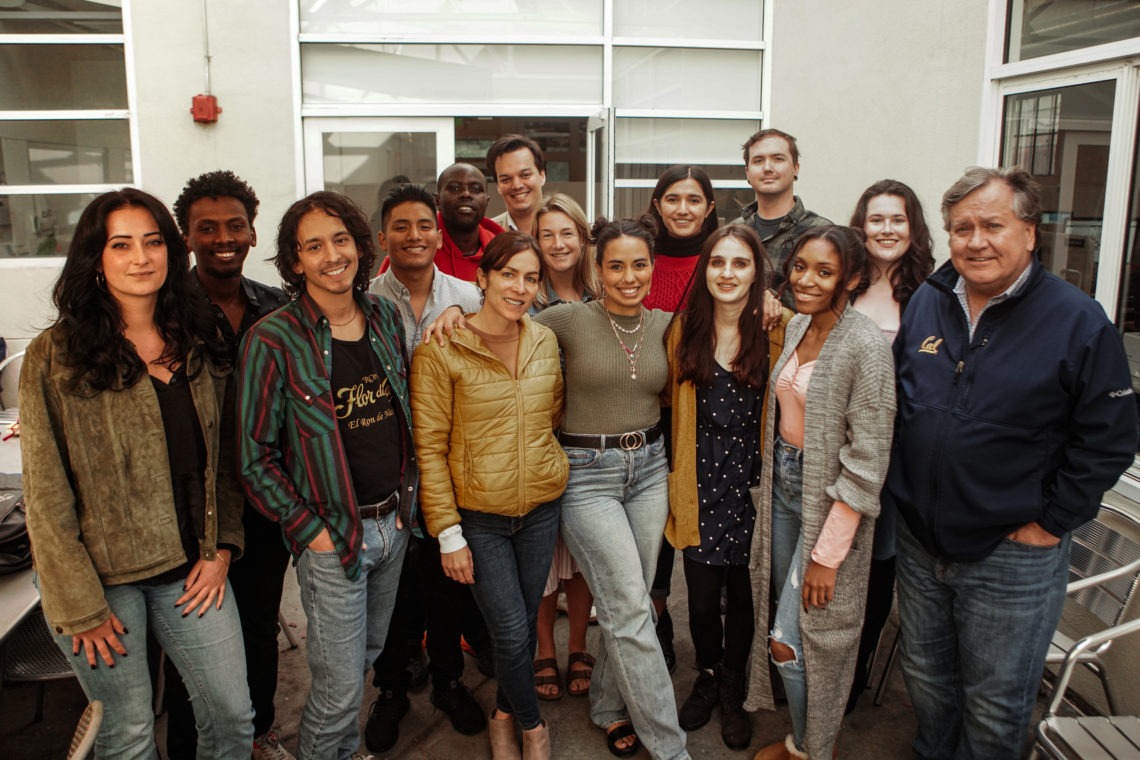
Prof. David Barstow and the new guard of investigative reporting. Photo: Beryl Terry (‘23)
Faculty News
Prof. Ken Light released a new monograph, “Course of the Empire,” culminating his 50-year career as a social documentary photographer. The book is his witness to the seismic changes in the American social landscape of the last decade, a stunning portrayal of mounting tensions in a polarized America, from Wall Street to the rural heartland. It is a riveting historical and visual record of a complicated country in a complicated time. Watch our October event with Light and alum Pendarvis Harshaw (‘14), columnist and host of KQED’s Rightnowish, here.
Prof. Armstrong is leading the San Quentin News’ first partnership with another prison. Incarcerated men at the state prison will offer journalism training, professional development and mentoring to incarcerated women at Folsom Women’s Facility. An initial group of 10 participants will go through a six-month journalism training program led by Armstrong with help from Berkeley Journalism students and alums.
As Britain mulls protecting leakers, Prof. and former Dean Ed Wasserman argued in the Columbia Journalism Review that it’s time for the U.S. to follow the lead of several of our allies and enact a public interest defense, which allows whistleblowers to argue that their violating secrecy laws benefited the public. He also wrote in the San Francisco Chronicle about how drones continued to slaughter Afghan civilians while whistleblower Daniel Hale—a former Air Force intelligence analyst— sits in prison under the Espionage Act for spilling secrets about the drone attacks in Afghanistan to The Intercept. And in a long piece for The American Prospect Ed looked at the future of libel and concludes times have never been better.
Senior lecturer Jennifer Kahn (’00) wrote a New York Times Magazine cover story on genetically modified food that spurred almost 1,000 reader comments.
Prof. Jennifer Redfearn’s feature documentary, “Apart,” premiers on PBS Independent Lens on February 21, 2022 as part of the Stories for Justice initiative.
Prof. Elena Conis’ (‘04) new book, “How to Sell a Poison: The Rise, Fall and Toxic Return of DDT,” will be out this spring from Bold Type Books. The book tells the story of an infamous poison that left toxic bodies and decimated wildlife in its wake, all while corporations stoked the flames of science denialism for profit. Eerily, as she was writing the book last spring, an expedition found tons of the chemical on the ocean floor off the shores of Southern California, dumped there decades ago by some of the very companies she was writing about. History truly does come back to haunt us.
Lecturer Abrahm Lustgarten and former lecturer Lucas Waldron (‘17) were awarded the Nina Mason Pulliam Award for Outstanding Environmental Reporting for, “Where Will Everyone Go? How Climate Refugees Might Move Across International Borders,” which was published in ProPublica and The New York Times Magazine.
Leading podcaster and bestselling author Tim Ferriss has made a substantial gift to help grow the University of California, Berkeley’s Center for the Science of Psychedelics (BCSP). Launched last fall, the BCSP was co-founded by Michael Pollan, a longtime faculty member at Berkeley Journalism. The journalism fellowship application form will go live on December 1. Learn more here.
Lecturer Adam Hochchild wrote a long and insightful review of the new book, “The 1619 Project: A New Origin Story,” for The New York Times Book Review.
Alumni News
Five alumni from the Berkeley Journalism school community were honored, some multiple times, in nominations for the 42nd Annual News and Documentary Emmy Awards.
Roberto Daza (‘12) received three nominations. The first two are for Outstanding Video Journalism and News and Outstanding Coverage of a Breaking News Story in a Newscast for the same work, “American Uprising.” The third is for Outstanding Feature Story in Spanish for, “Heridos, Presos, o Muertos: Las Consecuencias de Protestar en Venezuela.” Both pieces were produced for Vice News.
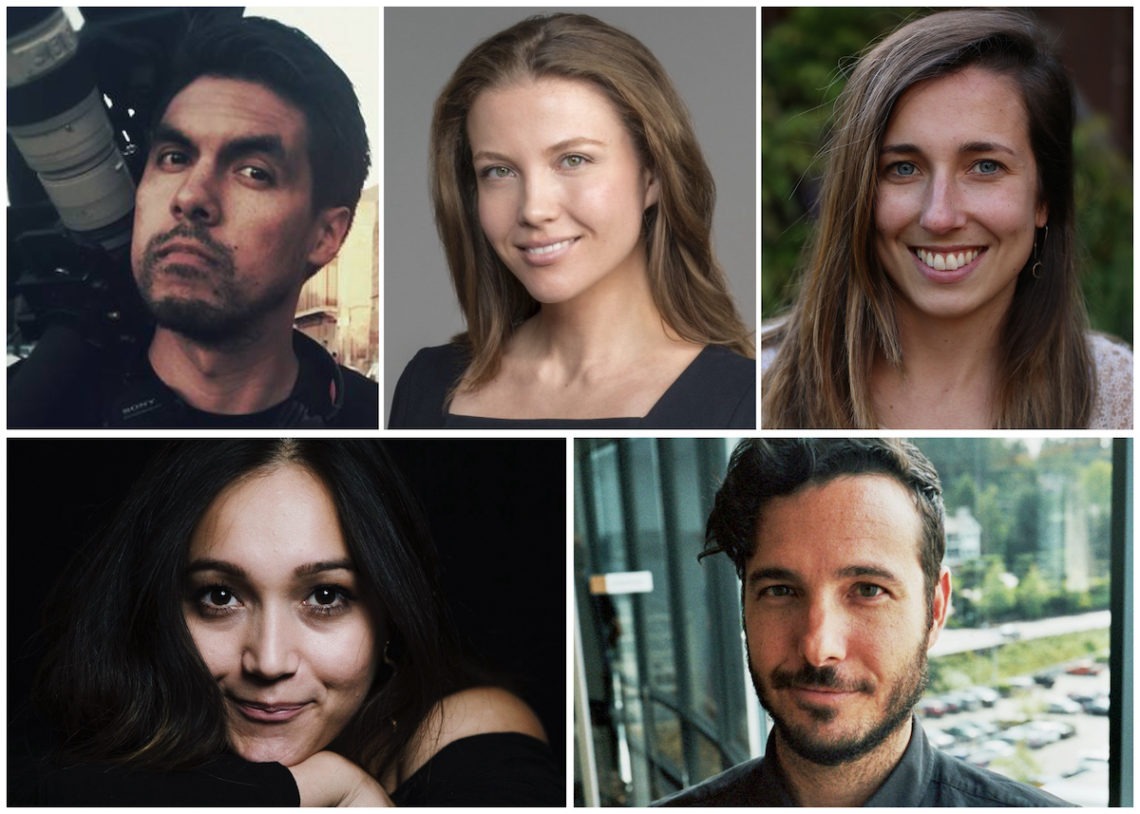
Clockwise top left to right: Roberto Daza, Jessica Naudziunas, Isara Krieger, Bo Kovitz and Steven Leckart.
Steven Leckart’s (‘07) film, “Challenger: The Final Flight,” which he developed, produced, and co-directed for Netflix, received two nominations. ABC News producer Jessica Naudziunas (‘14) was nominated in the Outstanding Edited Interview category for, “Their Painful Bond: Black Mothers Speak Out Together on Their Unimaginable Loss.” Bo Kovitz (’19) was an associate producer on, “John Lewis: Good Trouble,” directed by award-winning filmmaker Dawn Porter (former head of Berkeley Journalism’s prestigious documentary program). Isara Krieger (’17) received two nominations: one as assistant editor on, “John Lewis: Good Trouble,” and the other for, “The Way I See It,” also directed by Dawn Porter. Read about their honored work here.

The inimitable Pendarvis Harshaw (’14) pictured with his Northern California Emmy for “Dear Beloved”, a stunning collaborative performance between a hip-hop ensemble and mothers telling stories of loved ones lost to gun violence.
Yuriria Avila’s (‘21) thesis project on fake abortion clinics in Mexico ran on A1 of the Los Angeles Times. I was so proud to provide editorial support to Yuri.
Following its premiere at the Sundance Film Festival, “Homeroom”—produced entirely by folks in the Berkeley Journalism community—premiered on Hulu. Congratulations Pete Nicks (’99), Sean Havey (’14), Gaby Arvizu (’16) and Myah Overstreet (‘23).
Don’t miss Bria Manning’s (’23) recent profile of Michael Learmonth (‘96), editor in chief of Vice News.
Event News
I’ve been thrilled to participate in campus discussions on the challenges of disinformation and its polarizing effect on democracy. These gatherings motivated me to gather campus leaders together on the legislative initiative and joint journalism project I described above. You can watch the most recent campus disinformation discussion, moderated by Henry Brady, former dean of the Goldman School of Public Policy, which featured Hany Farid, associate dean of the School of Information, Erwin Chemerinsky, dean of Berkeley Law, Susan Hyde, chair of UC Berkeley Political Science, john a. powell, head of the UC Berkeley Othering and Belonging Institute, and myself.
Last month, I had the honor of appearing on a South Asian Journalists Association panel moderated by Sarah Khan, editor in chief of Conde Naste Middle East, and featuring Versha Sharma, editor in chief of Teen Vogue and Swati Sharma, editor in chief of Vox. You can watch it here.
I also joined Prof. Barstow in a special Campus Conversation discussing the future of journalism and our mission to take the lid off who gets to be a journalist. Watch it here.
Our students organized important events. Imran Ali Malik (‘22) and the Asian American Journalists Association San Francisco Bay Area Chapter hosted Jay Caspian Kang, a writer for The New York Times Magazine and Opinion and author of “The Loneliest Americans.” Watch it here.
We also produced an “On Mic” episode on the 50th anniversary of the Pentagon Papers. I moderated a conversation on the moral imperatives of whistleblowing with Daniel Ellsberg, his wife Patricia Ellsberg and Robert Rosenthal. Marlena Telvick produced the episode. Listen to the conversation in which Patricia Ellsberg describes, in a rare interview, the pivotal role she played in the papers’ release.
Elizabeth Kolbert, the Pulitzer Prize-winning author, talked about her latest book, Under a White Sky, in which she returns to humanity’s transformative impact on the environment, asking whether humans, having done so much damage, can try to change nature, this time to save it. I co-hosted the panel with David Ackerley, dean of UC Berkeley’s Rausser College of Natural Resources. You can watch it here.
Building a Financially Sustainable Future
Please know we are working hard to create a financially sustainable journalism school. Government funding for public education has fallen over the years. Where the state once funded more than 50 percent of our university budget, the government now supports only around 11 percent. All California universities have had to focus on strengthening private philanthropy as well as creating additional revenue streams.
We are currently hiring for an assistant dean of advancement. Campus leadership are supporting our ambitious goals by funding a second advancement position at Berkeley Journalism. In addition, we are following the lead of many of Berkeley’s professional schools that have built new revenue streams by creating online programs. Prof. Hernandez is taking on the expanded role of faculty director of online and undergraduate education. Vicki Hammarstedt will work with him to identify and pursue new revenue generating degree earning and non-degree earning programs aligned with the mission of Berkeley Journalism.
In closing, we believe that who the storytellers are matters. Our democracy depends on journalists reflecting and reporting on the lived experiences of all people. Berkeley Journalism is committed to advancing faith in journalism by recruiting and training the next generation of truth-seeking, fact-based journalists to become exceptional storytellers and industry leaders. The scope of our vision is expansive, but deeply worth the investment from each of us. Multiple programs need support, and the stakes are incredibly high. Will you stand proudly with us during this season of gratitude? Make a tax-deductible donation today!
Wishing you and yours health, joy and fulfillment,
Geeta Anand
Dean and Professor
Robert A. Peck Chair
Berkeley Journalism
About this communique: The Dean’s Letter is a quarterly email newsletter sent to alumni, donors, students, faculty, media partners and others in Berkeley Journalism’s broad community. If you’d like to follow ongoing developments in real-time, find us on Facebook, Twitter and Instagram. Have alumni news or accomplishments to share? Please send it, along with a high-res headshot to journalism@berkeley.edu. Are you hiring? Please reach out to career.services@berkeley.edu.

